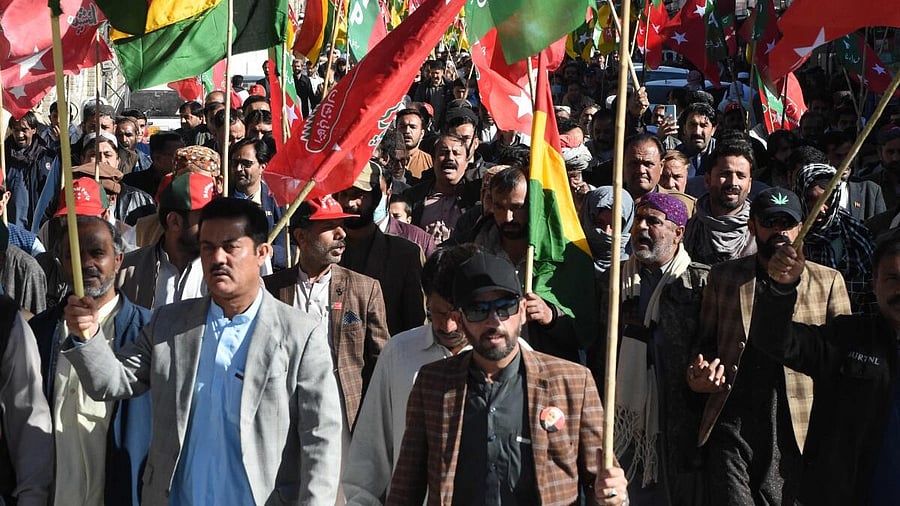
Pakistan has a poor history when it comes to elections.
As the Pakistan Muslim League (N) and the Pakistan People’s Party continue to find it difficult to cobble up a government, following the splintered verdict thrown up by the February 8 election, the jailed Imran Khan has moved to further queer the pitch by announcing his own party candidate for Prime Minister, defying the country’s powerful Army. Independents backed by Khan’s Pakistan Tehreek-e-Insaf (PTI), which was barred from contesting the election, were the single-largest bloc but could not stake claim to government formation as they are not affiliated to any party. Khan, who has claimed that the election has been stolen from him, had not wanted to form an alliance with either of the other two parties but now seems to see an opportunity he does not want to pass.
Pakistan's chequered history of elections is full of pre-poll rigging. But this is perhaps the first time since 1977 that allegations of massive result-rigging during counting have tainted an already dodgy process that was designed to achieve a victory for Nawaz Sharif’s PML(N). Sharif's own victory in two constituencies is being seen as suspect. It is possible that he has realised that taking charge of a government formed on the basis of such a questionable victory would blot his book, which may be why he has nominated his brother Shehbaz Sharif for Prime Minister, a role that the latter played in a PML(N)-PPP coalition government after the ouster of Khan’s government in 2022. But it would be surprising if the PML(N)-PPP alliance, along with several independents that they need to form government, would last beyond a few months, especially as their differences, particularly over economic revival, widen.
With the PPP an opposition within, PTI-backed independents on the opposition benches in parliament, and likely protests on the streets against a “stolen election”, there is unlikely to be much wiggle room for any big policy implementation on the economic front, let alone any rapprochement with India that a Nawaz Sharif-led government was anticipated to undertake. For the Army, the situation is a double-edged sword. The fractured mandate may give Pakistan Army chief Gen Asim Munir better control over political actors, but it won’t do the country’s economy any good. The security situation, too, is unlikely to improve, and may even worsen if PTI-backed independents succeed in forming the government in Khyber Pakhtunkhwa. The portents for all-round uncertainty in Pakistan is not good news for India. Delhi must be fully alert to the dangers.
